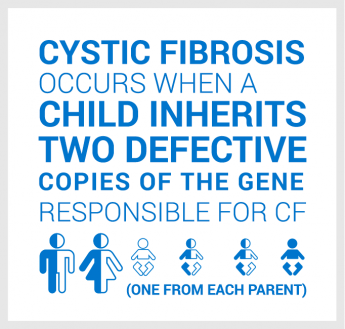Dr. Valerie Chappe is an Associate Dean of Graduate Students in the Faculty of Graduate Studies and full Professor in the Department of Physiology & Biophysics at Dalhousie University's Faculty of Medicine in Halifax, Nova Scotia, Canada, where she focuses on researching cystic fibrosis (CF) and its broader implications for health. Her research investigates how certain molecules, like Vasoactive Intestinal Peptide (VIP), contribute to lung health and respiratory diseases. She specifically looks at how VIP interacts with another molecule, GLP-1, in patients with cystic fibrosis who often develop diabetes as a complication.Collaborating with a diverse team of experts, Dr. Chappe strives to deepen our understanding of the molecular and cellular aspects of respiratory diseases, aiming to pioneer innovative treatment strategies. Her dedication and innovative approach were recently recognized when her current project received the Robbie Award for the most promising new research project at Cystic Fibrosis Canada.
Initially, Dr. Chappe focused her studies on understanding how CF predominantly affects the lungs. However, her research expanded significantly considering that CF has systemic effects, impacting not only the lungs but also critical organs like the pancreas. "The pancreas is essential for regulating blood sugar levels, and in individuals with CF, specific proteins crucial for pancreatic function are compromised," Dr. Chappe explains. "This dysfunction often leads to challenges in glucose control, a hallmark of cystic fibrosis-related diabetes (CFRD)."
Dr. Chappe's investigation into CF's impact on the pancreas stemmed from her early research on animal models that mimic CF symptoms. "These models revealed substantial changes in pancreatic proteins, prompting our team to explore how these changes affect glucose regulation early in the disease," she notes. This shift in focus underscores the systemic nature of CF and highlights the pancreas as a critical locus for understanding CFRD.
Central to Dr. Chappe's research is the investigation of VIP, a key regulator of inflammation and tissue function in the body. Through her studies, Dr. Chappe and her team discovered that VIP plays a pivotal role in pancreatic health among CF patients. "VIP interacts closely with the CFTR protein which is at fault in CF. We want to know how essential for maintaining pancreatic function VIP could be," Dr. Chappe reveals. "When VIP levels are insufficient, as observed in CF conditions, pancreatic complications could worsen, contributing to the development of CFRD in these patients."
Dr. Chappe's work elucidating the role of VIP in cystic fibrosis-related diabetes (CFRD) has broad implications for understanding how disruptions in neuropeptide signaling contribute to disease progression. "Our findings underscore VIP's multifaceted role beyond its known functions, highlighting its potential as a therapeutic target for mitigating pancreatic dysfunction in CF," she explains. VIP, typically known for regulating smooth muscle activity and water absorption in the intestines, has been shown by Dr. Chappe's research to have significant effects on the pancreas. This discovery is crucial because the pancreas is responsible for producing insulin, which regulates blood sugar levels. In CF patients, the dysfunction of VIP can lead to a decrease in insulin production, worsening CFRD.
Beyond understanding the underlying mechanisms of CF and CFRD, Dr. Chappe is committed to translating her findings into practical treatments for patients. "Collaborating with pharmaceutical companies, we explore new therapeutic approaches that target VIP pathways in the body," she states. "Early experiments in animal models have shown promising results, paving the way for future clinical trials aimed at developing interventions to prevent or mitigate diabetes in CF patients."
Dr. Chappe's collaborations with PhaseBio Pharmaceuticals Inc. and now ImmunoForge exemplifies her translational approach, bridging basic research with clinical applications. "Our work aims to expedite the development of targeted therapies that could alleviate CFRD symptoms and improve overall health outcomes in CF patients," she says. This ongoing partnership focuses on creating drugs that can mimic or boost VIP's activity, potentially offering a new treatment strategy for CF patients suffering from diabetes. By targeting VIP and its pathways, Dr. Chappe hopes to not only address CFRD but also improve overall health outcomes for CF patients.
Dr. Chappe emphasizes the importance of interdisciplinary collaboration in tackling complex medical challenges like CF and diabetes. "By working closely with clinicians and scientists specializing in CF and diabetes, we ensure that our research findings translate effectively from the lab to clinical practice," she asserts. This collaborative approach accelerates the development of new treatments and improves patient care outcomes.
Dr. Chappe's interdisciplinary collaborations extend beyond academia and pharmaceutical partnerships to include active engagement with people who have lived experience of CF. "Integrating patient perspectives and clinical insights into our research enhances the relevance and impact of our work," she notes, "ultimately striving to improve the quality of life for CF patients worldwide."
In the future, Dr. Chappe aims to broaden her research scope to encompass other health complications affecting individuals with CF. "With support from Cystic Fibrosis Canada and other research organizations, we seek not only to advance diabetes care but also to enhance the overall quality of life for CF patients globally." Dr. Valerie Chappe's dedication and innovative research promise to provide new insights and improved care for those living with CF and diabetes.
In reflecting on her research journey and the impact it could have on the lives of those living with CF, Dr. Valerie Chappe expresses deep gratitude for the support that has made her work possible. "Our research team is thrilled by the opportunity to conduct this research, and we sincerely thank Cystic Fibrosis Canada for their support and all the generous donors without whom nothing would be possible. We are honored and proud to be supported by the fantastic CF community," she shares. Dr. Chappe remains committed to pushing the boundaries of CF research, knowing that every discovery brings us closer to a brighter future for those affected by the disease.
Cystic Fibrosis is grateful for the support of Research Nova Scotia in contributing $100,000 to co-fund Dr. Chappe’s research.


.jpg)
.png)

